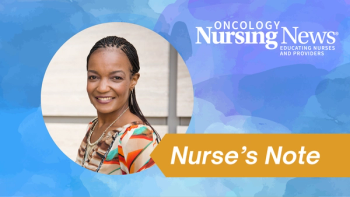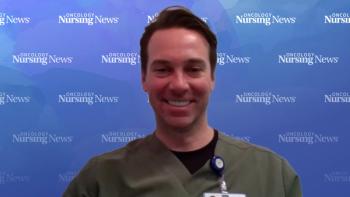
- April 2018
- Volume 12
- Issue 3
A Navigator Helps Patients Weather the Storms
One versatile nurse used creative ways to ensure that displaced patients received their treatments on time.
Mother Nature is wreaking havoc on our world. In the past year, we have experienced massive snowstorms, mudslides, hurricanes, and floods. Dealing with weather emergencies is difficult even in normal circumstances. When a person has cancer, the difficulties are multiplied.
I am an oncology nurse navigator in Philadelphia, Pennsylvania. Last year I was faced with the challenge of trying to navigate oncology patients from the southern United States whose lives were disrupted by the 2 hurricanes that devastated both Florida and Texas. Harvey and Maria are names I will never forget.
One memorable case involved a woman I will call BB. She was 66 years old. She lived in southern Florida and had multiple myeloma. BB was in the middle of treatment with cyclophosphamide (Cytoxan), bortezomib (Velcade), and prednisone. She called to ask what I could do to help her get treatment, because she was being evacuated and coming north to stay with friends. She was driving up alone. She had no family, and her usual support system, her network of friends in Florida, would also be evacuating.
I did an assessment over the phone and tried to get as much information as possible. Her doctor had given her copies of her records to take wherever she went, because he did not know whether her hospital or cancer center would still be standing after the storm went through. He wished her good luck and said he hoped he would see her again. BB told me how scared she was. She would be in the Philadelphia area by the time of her next treatment, which was a week away.
I registered her in our system and vetted her insurance. I asked where she would be staying, as we have a large network of satellite facilities that I could use if needed. I wanted to make this transition as smooth as possible. We agreed to talk again the next day.
“I am in your hands,” she told me. “I trust you to help me get through this.”
I felt a deep burden of responsibility to help BB overcome her challenges and access her treatment. My next step was to reach out to local providers. This was another hurdle, as we did not have records at the time and were basing her appointment on my assessment. My idea was to have her seen in one of the satellite facilities nearby so she would not have to drive in to the city. This would be best for her, especially if she needed to be here long term for continued treatments.
After a lot of juggling, I was able to get an appointment with one of our medical oncologists, as well as an infusion chair for treatment so she could stay on track. I spoke with BB daily to keep her updated on her new plan of care and made sure to keep her provider in the loop in case there were any glitches in her travels north.
BB arrived safely, tired but relieved to have that part of her journey over. She stayed in our area for several treatments, and then went back to Florida when it was safe for her to return. BB was one of the lucky ones whose home survived with minimal damage. Many of her friends were not as lucky. BB was most appreciative of having a navigator to guide her and told me she would have been lost without my help. She keeps in touch with me and is doing well and happy to be home.
I got several other calls from oncology patients in the South who needed help in trying to continue care. It was devastating for them to have to face the fact that their lives might never be the same, and home and comfort as they knew it might no longer exist. While working to accommodate these patients, I wore many hats—that of nurse, counselor, educator, and travel agent, to name a few. I followed the same game plan for each call and was able to successfully get everyone in who needed treatment. All my patients were able to be scheduled, and it felt good to know I could help them during that difficult time.
Being a nurse navigator is challenging, and no 2 days are ever the same. We constantly use our critical thinking skills and think outside the box to help our patients through the disease trajectory, no matter when or where it happens. They face challenges each and every day while battling their cancer.
Meeting these incredible people through this journey showed me how strong they are. They are survivors and fighters and prove that where there is a will, there is a way.
PRO TIPS FOR PREPARING TO HELP DISASTER VICTIMS
If you are expecting patients relocating temporarily due to weather disasters, here’s how you can prepare to help them continue care without disruption:
- Do an assessment before they arrive to try to get as much information as possible in advance
- Obtain medical records, if possible
- Register the prospective patient and vet insurance
- Be mindful of logistics; if they arrive without their own transportation, try to schedule treatment close to their temporary residence
Peg Rummell is an oncology nurse navigator at the Abramson Cancer Center, Penn Medicine, in Philadelphia, Pennsylvania.
Articles in this issue
over 7 years ago
After Cancer Treatment Ends, This Nurse's Work Beginsover 7 years ago
Doing Favors for Patientsover 7 years ago
Oncology Nurses in Fund-Raisingover 7 years ago
Fasting During Cancer Treatmentover 7 years ago
Helping Survivors of Head and Neck Cancer Face the FutureNewsletter
Knowledge is power. Don’t miss the most recent breakthroughs in cancer care.




















































































